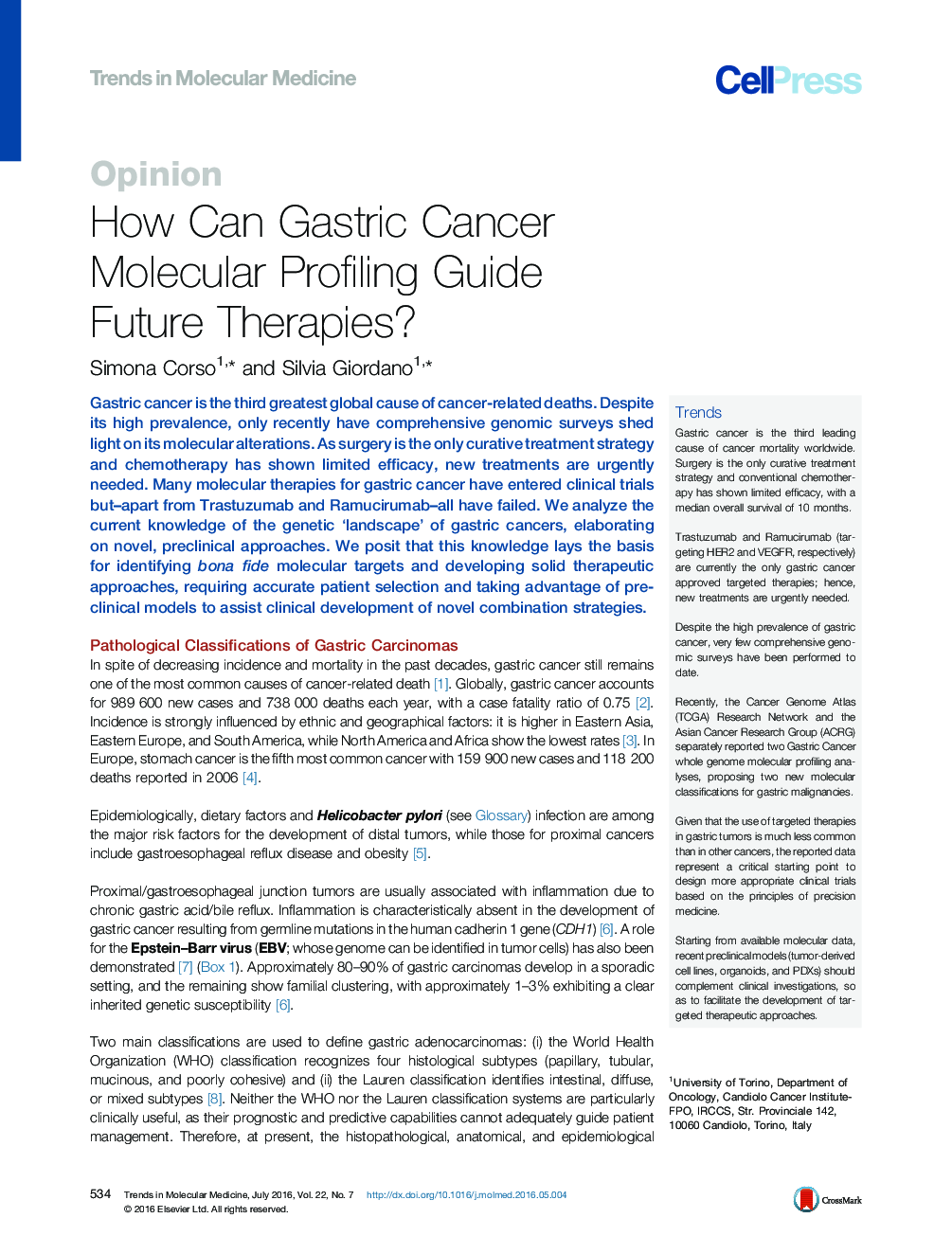| Article ID | Journal | Published Year | Pages | File Type |
|---|---|---|---|---|
| 2838311 | Trends in Molecular Medicine | 2016 | 11 Pages |
Gastric cancer is the third greatest global cause of cancer-related deaths. Despite its high prevalence, only recently have comprehensive genomic surveys shed light on its molecular alterations. As surgery is the only curative treatment strategy and chemotherapy has shown limited efficacy, new treatments are urgently needed. Many molecular therapies for gastric cancer have entered clinical trials but–apart from Trastuzumab and Ramucirumab–all have failed. We analyze the current knowledge of the genetic ‘landscape’ of gastric cancers, elaborating on novel, preclinical approaches. We posit that this knowledge lays the basis for identifying bona fide molecular targets and developing solid therapeutic approaches, requiring accurate patient selection and taking advantage of preclinical models to assist clinical development of novel combination strategies.
TrendsGastric cancer is the third leading cause of cancer mortality worldwide. Surgery is the only curative treatment strategy and conventional chemotherapy has shown limited efficacy, with a median overall survival of 10 months.Trastuzumab and Ramucirumab (targeting HER2 and VEGFR, respectively) are currently the only gastric cancer approved targeted therapies; hence, new treatments are urgently needed.Despite the high prevalence of gastric cancer, very few comprehensive genomic surveys have been performed to date.Recently, the Cancer Genome Atlas (TCGA) Research Network and the Asian Cancer Research Group (ACRG) separately reported two Gastric Cancer whole genome molecular profiling analyses, proposing two new molecular classifications for gastric malignancies.Given that the use of targeted therapies in gastric tumors is much less common than in other cancers, the reported data represent a critical starting point to design more appropriate clinical trials based on the principles of precision medicine.Starting from available molecular data, recent preclinical models (tumor-derived cell lines, organoids, and PDXs) should complement clinical investigations, so as to facilitate the development of targeted therapeutic approaches.
